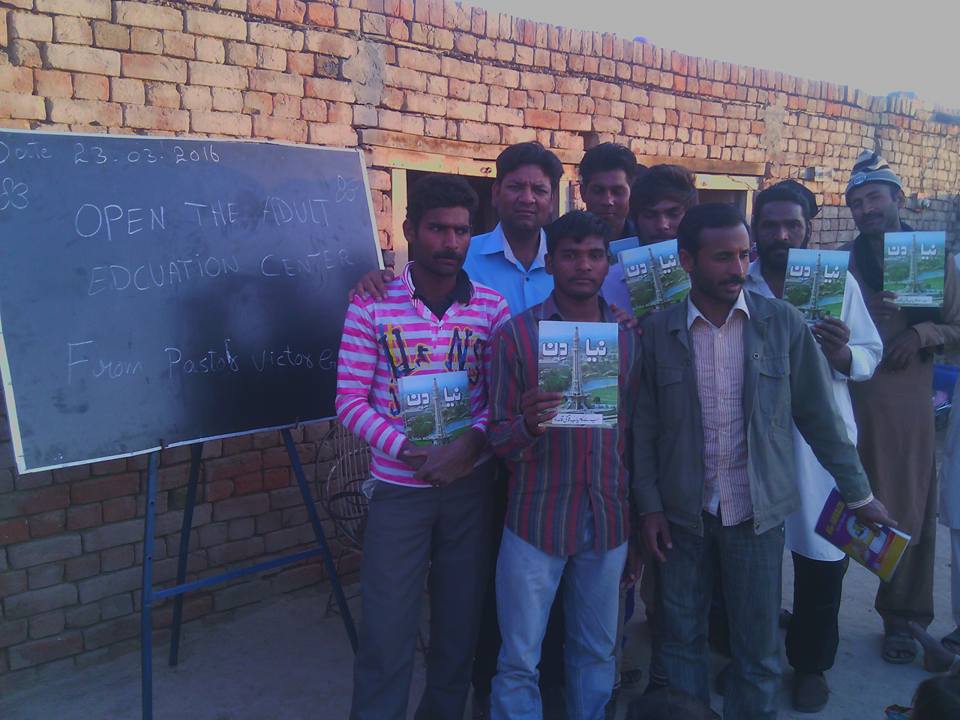Faisalabad, threats against Christian pastor: you will end up like Gojra
Pastor Victor George is being targeted and threatened by a neighbour named Muhammad Naseer. His crime is praying at home with his family. He confessed to AsiaNews that he is ‘deeply saddened for my family.’ Activists are speaking out against ‘hate crimes’ perpetrated against minorities by exploiting ‘blasphemy laws.’
Faisalabad (AsiaNews) - A new case of threats and intimidation against Christians occurred in recent days in the town of Haq Bahu in Faisalabad. Pastor Victor George was threatened in his home by a local resident named Muhammad Naseer for offering prayers with his family on the afternoon of 25 May on Malkhanwala Road, in the town in Punjab province.
The man addressed the faithful, ordering them to stop praying, otherwise they would suffer ‘consequences’ similar to the tragedy of Gojra in 2009.
The reference is to the terrible violence against Christians in a village in Punjab at the hands of Islamic extremists, one of the darkest moments in the country's recent history in terms of abuse and persecution of religious minorities.
This threat has contributed to fuelling fear among the local Christian community and raises more than one concern (and worry) about religious freedom and, more generally, security. Since that day, Christians have not been allowed to practise their religion and live in fear and under threat.
Speaking to AsiaNews, Pastor George said that the incident had ‘deeply saddened my family, especially my children, who now live in fear and ask me to move to a safer place.’
‘My daughters wonder why,’ he continued, "we were told to stop praying in our home and whether we should move our weekly prayer meetings to a church. I have no words to explain this hostility.‘
Christian activist Naseem Anthony points the finger at the ’persistent inability to deal prudently with hate crimes against religious minorities,‘ which fuels the abuses of those who ’exploit blasphemy laws to settle personal disputes."
‘Such abuse,’ he accuses, ‘not only undermines justice, but also places already marginalised communities such as Christians in constant danger of mob violence and social exclusion.’
Returning to the latest episode, local sources report that at 8 a.m. on 25 May, the Protestant leader, who lives on Street No. 1 in the town of Haq Bahu, was engaged in a routine prayer session with his family.
The service, held in their home chapel, continued until 9.30 a.m. and is a regular part of their weekly spiritual practice, providing the family with a time of peaceful reflection and religious observance.
However, in the afternoon of the same day around 4 p.m., Muhammad Naseer — a resident of the same street with a history of personal hostility towards the Victor family — approached and began making aggressive and threatening comments.
Although Naseer had harassed the family on several occasions in the past, the latest incident marked a worrying escalation. He verbally abused the family in the presence of women and children, making a serious threat: stop praying, or they would face consequences similar to the 2009 Gojra tragedy, an episode of violence by Islamic extremists against the Christian community in Punjab.
The comments were deemed deeply offensive, as well as constituting a direct incitement to violence, and triggered a climate of fear and anxiety among the many Christian families in the neighbourhood, who expressed deep concern for their safety.
Many feel intimidated and unsafe in practising their faith, even in the privacy of their own homes. Activists and pro-rights movements speak of a ‘disturbing incident’ that represents a ‘serious violation’ of religious freedom and reflects the ‘continued vulnerability’ of minority communities in the area.
The affected families are urging local authorities and law enforcement agencies to take swift and decisive action against Muhammad Naseer for his repeated threats, offensive language and incitement to violence.
They are also calling for adequate security measures to ensure the protection of their constitutional right to freely practise their religion. Immediate action, they say, is essential ‘to prevent further escalation and restore a sense of peace, justice and dignity’ for the residents of HaqBahu.







.png)










